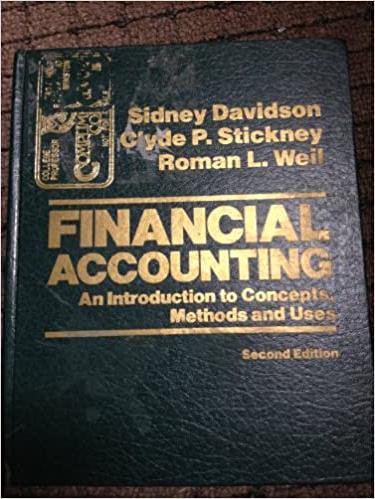Question
Tim Trying, who is single, purchased a house on the beach in sunny Southern California 35 years ago. He is now retiring and moving to
Tim Trying, who is single, purchased a house on the beach in sunny Southern California 35 years ago. He is now retiring and moving to Hawaii for his golden years. Tim sold his house for $1,200,000 this year. Tim has been a client of yours for the past decade. He became a client when he was referred to you by your parents, who live two houses away from Tim. When asked what his tax basis is in the house, Tim says it is $975,000. Your parents bought their house at about the same time, and you know they paid $100,000 for it. You have seen Tims house many times and, although the house is well maintained, you know it does not have any major improvements or betterments. You are reasonably certain that Tim is overstating his tax basis by hundreds of thousands of dollars in order to avoid a taxable gain on the sale.
Why wouldnt you sign the return? What is the tax code violation?
If you signed the return, what could happen to you as a tax preparer? What penalties apply for the tax preparer?
What types of taxpayer penalties apply?
How would you explain to your client why you would not sign the return and why they should change their position on what they want to put on the return? Remember they are NOT tax preparers; explain it so they will understand, back it up with IRS tax code or IRS filing rules and requirements.
Step by Step Solution
There are 3 Steps involved in it
Step: 1

Get Instant Access to Expert-Tailored Solutions
See step-by-step solutions with expert insights and AI powered tools for academic success
Step: 2

Step: 3

Ace Your Homework with AI
Get the answers you need in no time with our AI-driven, step-by-step assistance
Get Started


